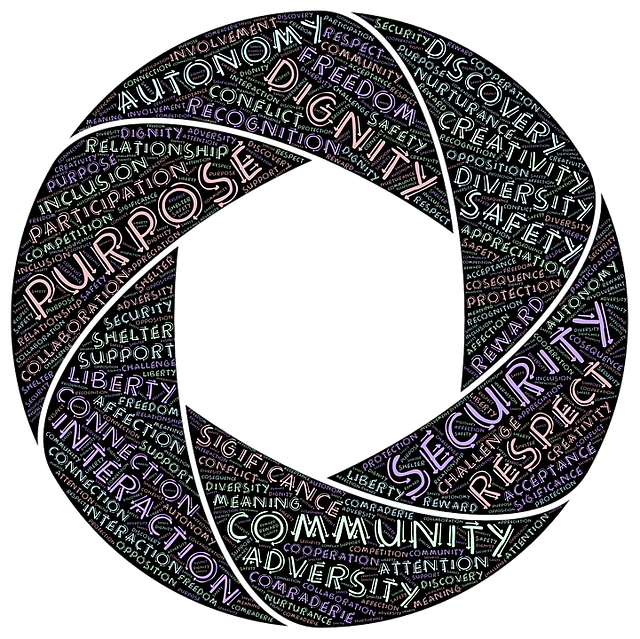Cohering Community
Creating Capacity to Thrive Together
Connection and community are at the heart of being fully human. At our core, we are relational, caring creatures. Deep down, we all have:
In these times of increasing fragmentation and distrust, many are feeling lost, unsafe, isolated, lonely, betrayed, and without meaning and hope. At times, the fulfillment of our deepest longings can feel far beyond our reach.

Together, we can co-create a new human story energized by possibilities rather than problems. In conscious, connected community, we can expand our capacities to fulfill the longings of our individual and collective soul. We can expand our capacity to trust.
You are invited to join us in a circle-based learning lab to personally experience and practice core conversations that are foundational to building and sustaining coherent, vibrant, trust-based community. This journey will expand your relational and communication capacities, give you a felt sense of belonging, support and hope, and inspire you to participate in reweaving our social fabric through grassroots communities that act for the good of all. In togetherness, we thrive!

You are invited to register for an upcoming free online Cohering Community 'Taster' session that will provide a meaningful, participatory experience of connection, conversation and community building.
At the end of the session, you will be invited to join us in co-creating a grassroots movement for change aimed at fulfilling our deeper longings and building capacity to thrive together. We'll also answer questions you have about the Cohering Community program to help you decide if it is right for you, your colleagues/friends or group.
The Cohering Community program is a deep, multi-week experiential journey we take together. In this program, you will learn about and experience the power of 'circle practice', inquiry, and open dialogue as foundational building blocks for healthy community. You will strengthen your individual and group capacity to thrive with change!
In this program we are offering three 'streams' of experience and commitment. While all participants learn and experience this program at the core individual level, you can upgrade your experience and depth of learning by simultaneously taking the leadership development part of the program. Ideally, if you are part of an existing group or team, we recommend bringing your whole team into the program!
|
Program Dates
|
Peter Block is a master in community building. In his book, Community, he outlines six core community-building conversations that invite people into deeper, more authentic connection, laying the groundwork for healthier, transformative community.
Using these Block and other core conversations, combined with other community building practices, we will set out on our own journey of forming a community of trust while we explore the possibilities of including these practices into our lives and our work for the world.
My passion in this life is life; in all its shapes and forms. From a young age I felt curious and fascinated by connections and relations, whether it be within myself, with others or nature. I was very drawn to the possibilities that reside within each and every one of us, in particular when coming together, when we allow and invite the possibilities. Through this interest and by combining two of my favourite things, sports and behavioral science, I started training within Sport Psychology. This was a ´great venture and a wonderful learning journey. Later, these studies were transferred into the field of Organizational Psychology.
Now, this passion has brought me in the direction of deep transformation and sustained change, where I practice as a deep transformational coach. Still, my calling is pulling me towards the endless possibilities emerging when being and experiencing our togetherness – here is where I love to spend my time!
‘Out beyond ideas of wrongdoing and rightdoing, there is a field. I’ll meet you there’ (Rumi).
I am passionate about working with organizations and community to expand their capacities for authentic connection, leadership, collaboration and innovation. I especially love facilitating Open Space Technology meetings. I’ve had the pleasure of facilitating several peace conferences for Rotarians, co-founded the PeaceLeaders Collaborative and facilitated Greater Moncton, Canada becoming an International City of Peace. On a regular basis, I host open, online Leadership Dialogues and Peace Cafés using the Bohm Dialogue method.
I resonate with Gandhi’s statement, “Be the change that you wish to see in the world.” For the last 20+ years, I have studied, taught and worked with hundreds of individuals to elevate their lives from the inside -> out by changing limiting beliefs, forgiveness, releasing trauma, and integrating shadow. I especially love doing “Shadow integration work.” 'Shadow,' often birthed in trauma, is at the core of most limiting behaviours and largely responsible for the polarization we are experiencing in our world today.
David Currie - For The Good of All Now
David Currie is the author of For the Good of All, NOW! a guide for embracing connection, oneness, and community. He draws on skills and experience, acquired over 40 years in both for-profit and non-profit sectors. All the while pursuing his core beliefs in the power of community to restore its position as the primary source for the co-generation of the values that sustain a compassionate humanity and promote the good of all.
David is a member of the Prosocial Commons and a steward of the For the Good of All, NOW! group. A commons organized purposefully as a gathering place for all who seek a coherent replicable path to successfully navigate through the coming major evolutionary transition. David resides in Binghamton, USA.
|
Copyright © 2024 ElevateWork All Rights Reserved Privacy Policy Terms of Use |
A truly safe group environment provides the basis for powerful transformation, empowering exploration, inspired collaboration and vibrant living. We co-create this space by the way we participate. Here are some ways you can help in co-creating a shared, held, safe space for connection and contemplation.
The primary underlying principle of these agreements is acceptance. Accept that everyone is doing their best to learn and grow, by respecting and following these standards. Self-acceptance is particularly beneficial to experience a safe, empowering environment to learn, create, communicate and celebrate.
In signing up for a Cohering Community experience, I agree to practice these standards to the best of my ability:
1. It is my intention to maintain confidentiality.
2. It is my intention to have an open and innocent mind and heart.
3. It is my intention to practice a positive focus.
4. It is my intention to connect at a heart level.
5. It is my intention to claim my experience as my own.
6. It is my intention to listen deeply and with honor.
7. It is my intention to give authentic acknowledgment and support.
8. It is my intention to fully receive acknowledgment and support.
9. It is my intention to practice self-care and self-responsibility, and allow others to do the same.
10. It is my intention to be fully present.
In this program, you will experience many conversations designed to deepen our coherence and connection with ourselves and others. These core conversations include 6 tried and proven conversations from Peter Block's book, "Community - The Structure of Belonging".
People become powerful when they choose to shift the context within which they act in the world. Communities are human systems given form by conversations that build relatedness. The conversations that build relatedness most often occur through associational life, where people show up by choice.
Each of these conversations will be experienced through inquiry with powerful questions. The power is in the inquiry, not the answers. The Peter Block conversations that are included in the program are:
In the Cohering Community circle-based practices, participants can develop a range of powerful skills and capacities, including:
Overall, our group circle practices offer a valuable opportunity for you to develop interpersonal skills, emotional intelligence, and relational capacities that are essential for building healthy, resilient communities and organizations.